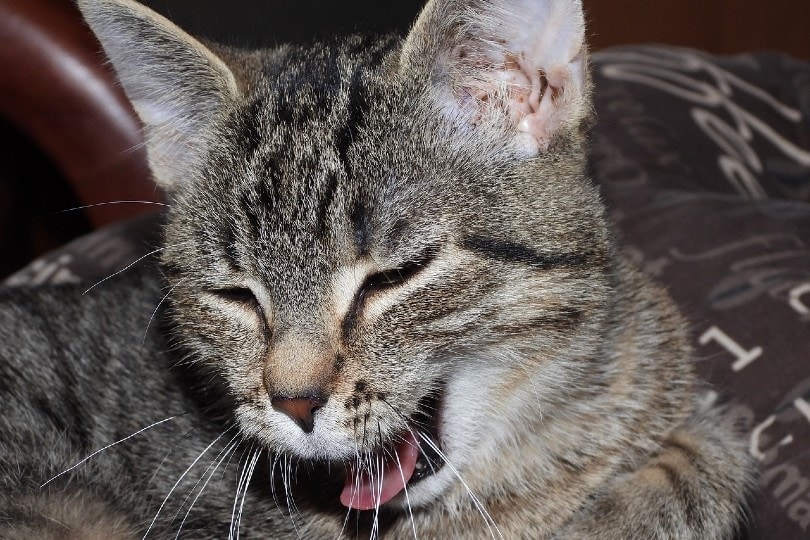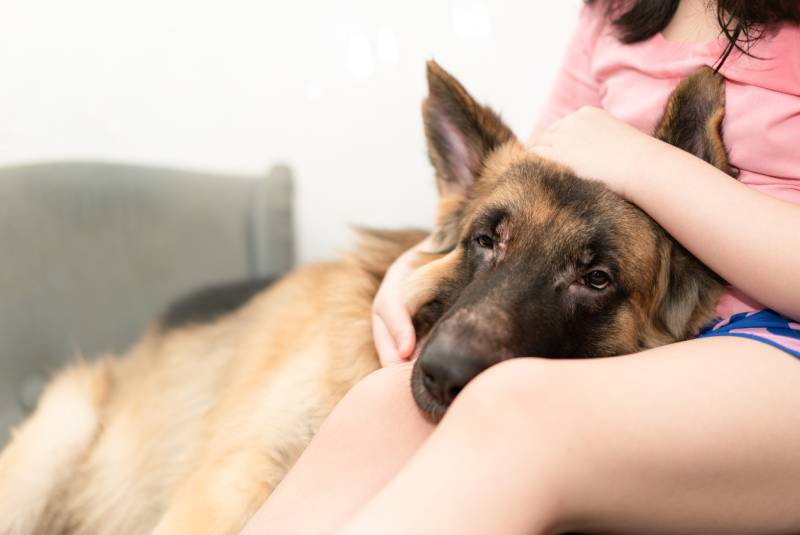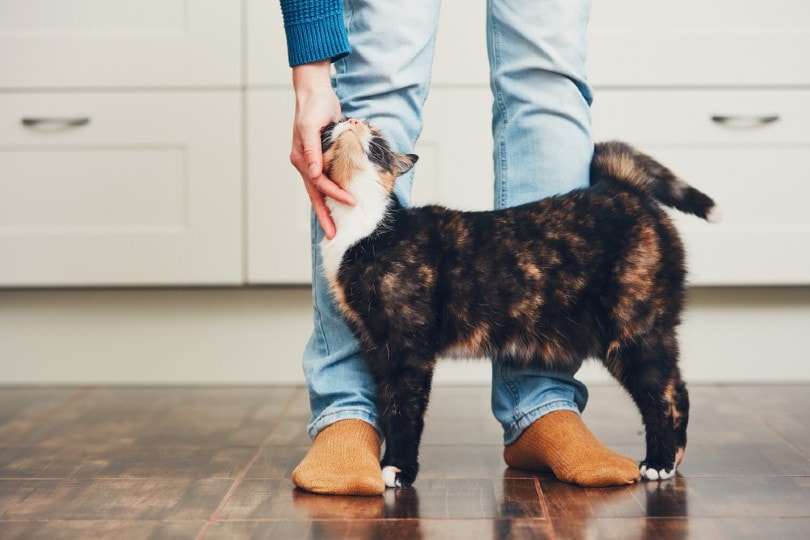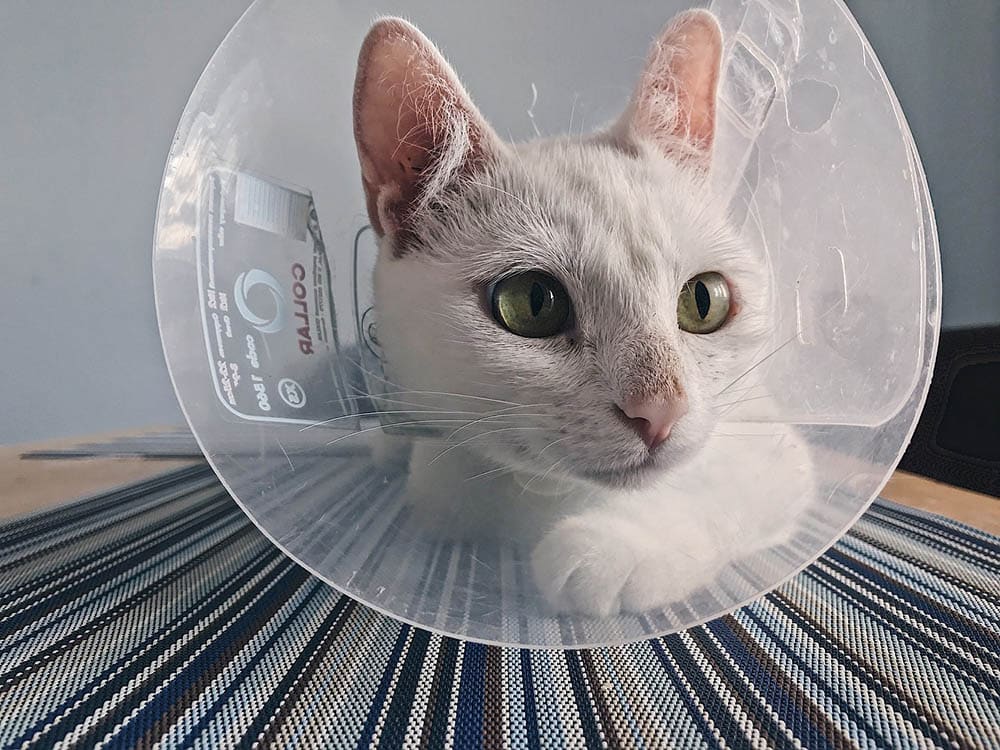VET APPROVED

The information is current and up-to-date in accordance with the latest veterinarian research.
Learn more »National Hairball Awareness Day is celebrated in April on the last Friday, to be precise, so the date changes every year. In 2025, the event falls on April 25th. Veterinary practices use it to inform pet parents about hairballs, including what to look out for and how to prevent them.

What Are Hairballs?
Almost everyone who has ever lived with a feline companion has had the unpleasant experience of encountering watery, fur-laced vomit, otherwise known as hairballs. Hairballs are caused when cats groom themselves and swallow fur. That fur collects and clumps in cats’ digestive systems until it’s expelled as hairballs. Normally cats should pass ingested fur, and just poop it out. Older cats and pets with itchy skin often end up with hairballs more frequently than others due to increased licking.
While it’s normal for cats to have occasional hairball issues, pets should be checked out by a veterinarian if they start exhibiting other signs of illness, such as lethargy, weight loss, or diarrhea. Vomiting can occur from several illnesses, including parasites and certain types of gastrointestinal lymphoma.
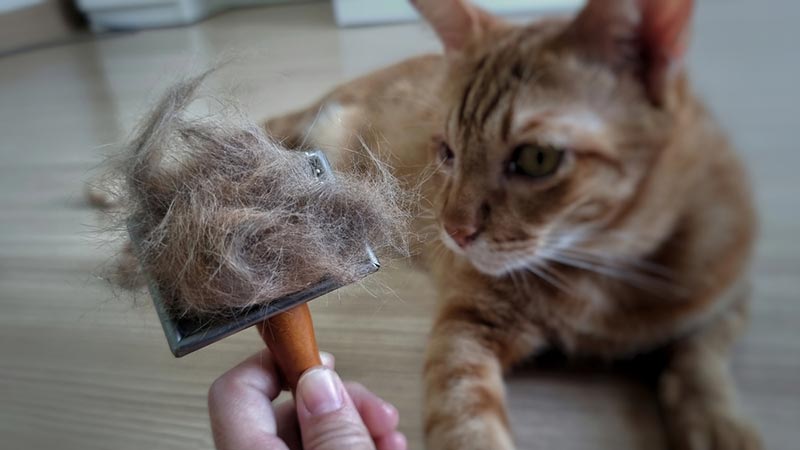
How Are Hairballs Treated?
Most cats don’t need hairball treatment as the condition usually resolves on its own after the accumulated fur is expelled. However, cats that cough up hairballs frequently may require veterinary assistance and a change of diet.
There are medications your veterinarian can prescribe to help your cat pass hairballs without vomiting, and some cats benefit from dietary formulations designed to reduce hairball formation. High-fiber diets often encourage regularity and make it easier for the hair to pass through cats’ digestive systems efficiently. Increasing the water consumption and moisture content of the food can also have great results. Speak with your veterinarian if your cat coughs up hairballs more than once a month or so, as frequent vomiting can sometimes signify an underlying health condition.
Can Hairballs Be Prevented?
Regularly brushing cats is one of the best ways to prevent hairballs from getting started, as it removes lots of the excess fur that would otherwise end up in your buddy’s digestive system. While short and long-haired cats benefit from regular grooming, it’s particularly important for long-haired breeds.
Our favorite cat brush is Hepper Cat Brush. This brush is perfect for both you and your cat since it is easy to use, clean and it’s very effective when getting rid of loose hair and knots in your cat’s coat.
At PangoVet, we’ve admired Hepper for many years and decided to take a controlling ownership interest so that we could benefit from the outstanding designs of this cool cat company!
Many cats enjoy being groomed, and it’s a fantastic human-feline bonding activity. Purchasing a cat fountain can increase hydration and help reduce hairballs, especially for cats that are picky about drinking from water bowls. Also, you can play with your cat more often to provide more exercise and mental stimulation; cats often groom themselves when bored, which can lead to increased fur ingestion.
- Related Read: Itchy Pet Awareness Month

Conclusion
The last Friday in April is National Hairball Awareness Day, so it’s celebrated on a different day every year; this year, it’s on April 25th. Veterinarians often participate by engaging in outreach to raise awareness of feline hairballs (and how to prevent them).
Hairballs are incredibly common, so an incident or two every now and then is likely not much to worry about, but make sure to get your pet checked out if the vomiting continues or they start showing other signs of illness such as diarrhea, lethargy or appetite loss, as it’s not normal for cats to experience regular gastrointestinal distress.
Featured Image Credit: Ada K, Pixabay
